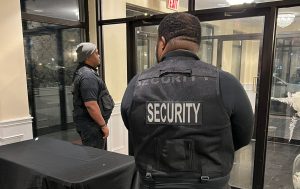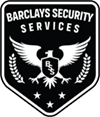
Security in Canada is of the utmost importance; it is vital to understand potential dangers and traits and take appropriate measures to reduce them.
The majority of the people living in Canada usually have this high sense of security. From research, it is routinely rated as one of the world’s most peaceful nations, and its towns and cities tend to frequently promote neighborliness and trust. Although this is not a yardstick for us to say we can afford to take our security in Canada for granted.
As a result of this, Barclays Security has made a list of 10 security tips that every Canadian should never forget but know at heart, regardless of lifestyle, occupation, belief, and geography.
This article will further elaborate on the frequently overlooked reality of everyday threats that Canadians face that go beyond the standard “lock your doors” advice.

Security In Canada: What you must know
The global security threat has become a major issue, and Canadians are not an exception. Before we discuss some advice on being well-secured, let’s take a brief look at the security challenges that Canadians face as provided by Barclays security.
Although the specific threats that you are most likely to face will vary depending on where you live in Canada and your individual circumstances,.
The following is a list compiled by Barclays Security that consists of the main security risks that Canadians currently face:
- Cybercrime
One of the risks that is expanding the quickest in Canada is cybercrime. Hackers target both individuals and companies, taking financial information, intellectual property, and personal information.
In order to protect themselves, Canadians need to be informed of the most recent trends in cybercrime and take precautions, including using strong passwords, exercising caution when sharing information online, and updating their software.
- Fraud
Another big worry for Canadians is what is generally known as fraud, although this is not only applicable to residents of Canada.
Scammers are getting more and more creative in their techniques to defraud individuals of their money.
Phishing emails, identity theft, and investment scams are examples of common frauds. Unwanted emails and phone calls should make Canadians suspicious and cautious.
- Invasion of the Home
Though not as often as in several other nations, house invasions and burglaries nevertheless happen. Unsecured residences and sly lawbreakers continue to be issues.
Every year, 1.2 million Canadians become victims of material crime, and the psychological impact of home invasions far outweighs this number.
Even though they are rare, 20% of occurrences include weapons, and half of them end in injuries, which cause psychological damage more severe than property theft. To counter this threat, a multi-layered strategy is needed, and that is why Barclay Security has made a list of preventive measures to take.
Security in Canada for its residents should go beyond statistics and citizens can also employ the services of Barclays security. We may turn our houses from prospective targets into havens of calm by realizing the complex threat posed by home invasions and taking appropriate preventative measures.
- Domestic Abuse
Regretfully, far too many Canadians experience domestic violence. Prioritizing safety necessitates also being aware of warning indicators and seeking help.
Its effects go far beyond a single victim; communities and the country at large are seriously at risk for serious security breaches, all thanks to Barclays Security and the services they provide.
Language and social difficulties put newcomers to Canada at greater risk, and domestic abuse has far-reaching and sometimes permanently negative effects.
These are but a few of the most significant security risks that Canadians currently face. We can contribute to the creation of a better and more secure Canada by being aware of these concerns and taking precautions to protect ourselves.
10 Barclays security tips every Canadian should never forget
No matter how safe a country or nation is, vigilance is essential in safeguarding our properties, digital footprint, financial information, and physical well-being, especially as it has to do with security in Canada.
As a tenant, student, or landlord living in Canada, you should always keep in mind that the government can only play its part in providing police to reduce the crime rate, but when it comes to your security, it is in your hands to protect yourself and your properties, and the below-listed tips can be taken to achieve maximum security.

- Keep your house safe
In Canada, the process of protecting your house from potential threats and hazards starts with making sure it is safe. The first step in ensuring that you achieve this is to fortify your home by installing strong locks on all of the entry points, such as windows and doors.
If you are financially capable, you can opt for a higher level of security by purchasing a whole home security system that comes with cameras and alarms to fully monitor your house.
Having enough lighting outside is also important for discouraging any trespassers, especially on long Canadian nights. Furthermore, you can create and build positive ties with your neighbors, as this can help promote cooperation and vigilance in the neighborhood.
You can also learn to adopt strategies like not sharing vacation plans on social media or giving out details of your current locations to prevent giving away the location of your house.
Make sure you always reassess and strengthen your home’s security systems regularly to keep up with changing threats. Canadians may greatly improve their home safety and the general security of their communities by seeking professional advice from Barclays Security or implementing the above techniques.
- Have cyber intelligence
To protect data in the digitally connected world of today, Canadians must be cyber-secure and conscious. By developing an awareness of the hazards and vulnerabilities that exist online today, you can stay ahead of any cyber threats.
Make sure your passwords are strong and distinct; avoid using dates of birth or common passwords that can be easily guessed by hackers; and always remember to use two-factor authentication to strengthen your online security.
It is also advisable that you update your software and hardware frequently to fix security flaws and lower your chance of being a target of cyberattacks. Always be on the lookout for harmful websites and phishing scams, and familiarize yourself with prevalent online hazards. To add an extra line of defense against viruses, use reliable antivirus software.
Canadians have proven to be capable and up to the task, especially as it concerns securing and navigating the digital landscape. With this knowledge, people may take proactive measures to safeguard their confidential information, making the internet a safer place for them and strengthening the country’s cybersecurity defenses overall.
- Keep Up With Emerging Security Concerns
One of the best and most important ways to protect oneself in the ever-changing Canadian security situation is to stay alert and proactive in staying up-to-date with new security concerns.
Keep up with the most recent cybersecurity threats and be aware of any possible weaknesses in digital environments.
As earlier stated, update your software and hardware regularly to fix security holes and lower your vulnerability to intrusions.
Keep up with regional and federal security notifications to be aware of possible dangers. Read reputable news sources and official notifications to comprehend changing hazards.
Take part in community forums or debates as well to exchange ideas and keep up-to-date on issues related to neighborhood security.
- Take care when traveling
Being ready for everything is a key component of personal protection in Canada’s vast and varied environments.
Create a thorough emergency supply kit at home with necessities such as water, non-perishable food, first aid materials, and critical documents. Create a family emergency plan that outlines escape routes and methods for communication.
Use trustworthy sources to stay up-to-date on local weather reports and emergency alerts. Learn about the approved shelters and the assistance available in your neighborhood.
Make sure your emergency pack and plan remain relevant over time by reviewing and updating them regularly.
- Exercise caution in public areas
Being cautious is crucial for personal safety in Canada’s busy public areas. always Pay attention to your surroundings and remain alert, especially in crowded or unknown settings.
Keep valuables hidden to deter theft, and refrain from flaunting your most expensive and luxurious possessions. Follow your instincts and stay away from dimly lit or isolated regions. Instead, seek well-lighted and well-traveled routes.
Be mindful of potential dangers when traveling around cities or using public transit. Learn the contacts and procedures for local emergencies.
- Keep an eye on your bank debts
Ensuring total security requires protecting your financial information above all else. Keep a close eye out for any unusual activity in your credit reports and bank accounts. Make use of strong, one-of-a-kind passwords and safe online banking procedures.
Never provide important information through unprotected means, and be wary of phishing scams. You may reduce your risk of identity theft and financial fraud and ensure your financial security and peace of mind by regularly monitoring your bank bills and financial information.
- Teach your friends and family
It takes a team to maintain security; therefore, it’s critical to inform your friends and family about safety precautions.
Talk about personal safety, cybersecurity, and home security. Promote the integration of safe habits into everyday activities.
Plan your communications for times of emergency and stress the value of being informed. Educating your friends and family helps build a network of watchful people who make Canada a safer place for everyone to live.

- Use secure online banking
Navigating the digital banking landscape, online banking security is critical, especially for Canadian residents. Make use of safe Internet banking procedures to safeguard your financial stability. Remember to change your password frequently.
For an extra degree of security, use two-factor authentication, which requires a password in addition to a second form of verification.
To swiftly identify and take action against any fraudulent activity, keep a close eye on your bank accounts and set up transaction notifications. Choose private and secure connections whenever possible while accessing your online banking instead of using public Wi-Fi networks. To strengthen your defense against potential cyber threats, make sure your devices are up to date with the most recent security patches.
- Keep your mobile devices safe
Protecting your mobile devices is vital at a time when they are an essential component of daily life.
You can start by using biometric authentication or a strong, one-of-a-kind passcode to secure your mobile device. Update the operating system and apps on your smartphone regularly to fix security flaws and improve security features.
When downloading apps, use caution and make sure the source is reliable. In the event of theft or loss, turn on remote tracking and wiping capabilities. Use a virtual private network (VPN) for safe browsing, as public Wi-Fi networks present concerns. Install and update a reliable antivirus program regularly to protect yourself from malware and phishing scams.
Putting mobile device security first benefits individual users as well as the country’s broader digital resilience.
Through the implementation of these practices, you can strengthen your mobile security, protect your personal information, and reduce the possibility of cyberattacks.
- Remain ready for any emergencies
Being ready for everything is an essential part of personal protection in Canada’s vast and varied environments. Create a thorough emergency supply kit at home with necessities such as water, non-perishable food, first aid materials, and critical documents. Create a family emergency plan that outlines escape routes and methods for communication.
Use trustworthy sources to stay up-to-date on local weather reports and emergency alerts. Learn about the approved shelters and the assistance available in your neighborhood. Make sure your emergency pack and plan remain relevant over time by reviewing and updating them regularly.
CONCLUSION
Remember, security is a shared responsibility of which Barclays security is ready to take up the responsibilities. We can all help create a safer and more secure environment for our families, communities, and ourselves by practicing these suggestions and exercising caution. And for complete financial security solutions that are customized to meet your demands, consider exploring trusted Barclays Security.

admin
March 11, 2018The recording starts with the patter of a summer squall. Later, a drifting tone like that of a not-quite-tuned-in radio station rises and for a while drowns out the patter.
admin
October 24, 2018Some need to protect very valuable information. All these factors should be taken into account.
admin
October 24, 2018All these factors should be taken into account. A risk-aware Windows user can probably survive without any anti-virus software at all.
admin
October 23, 2018The Rangers needed a jolt for their first home game of their second-round series against the Ottawa Senators. Turning to Tanner Glass and his physical style.